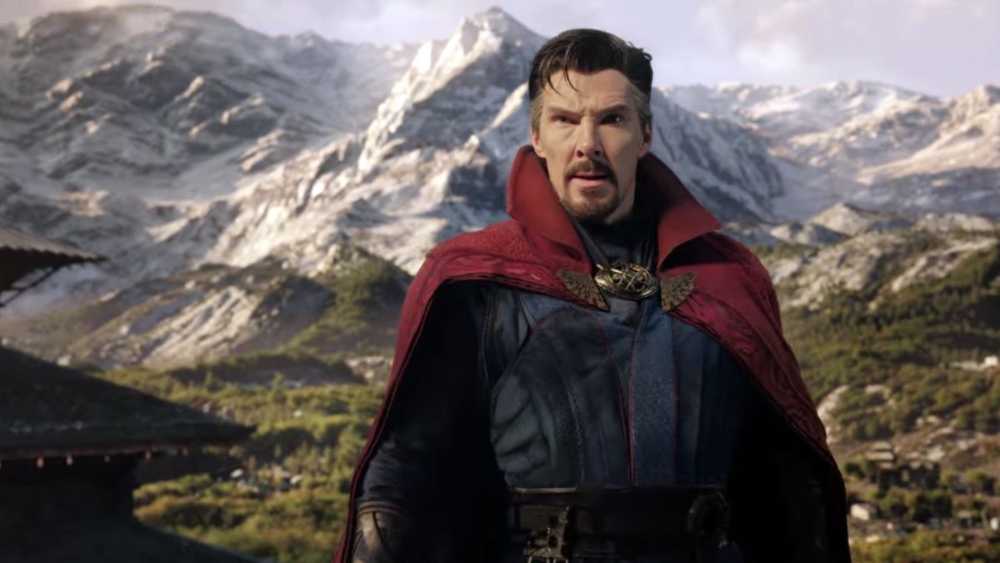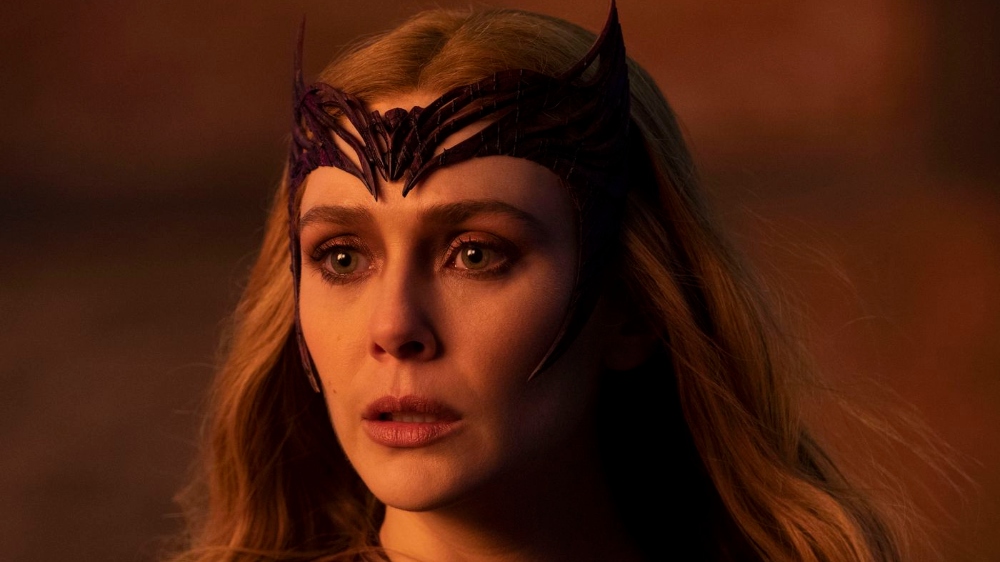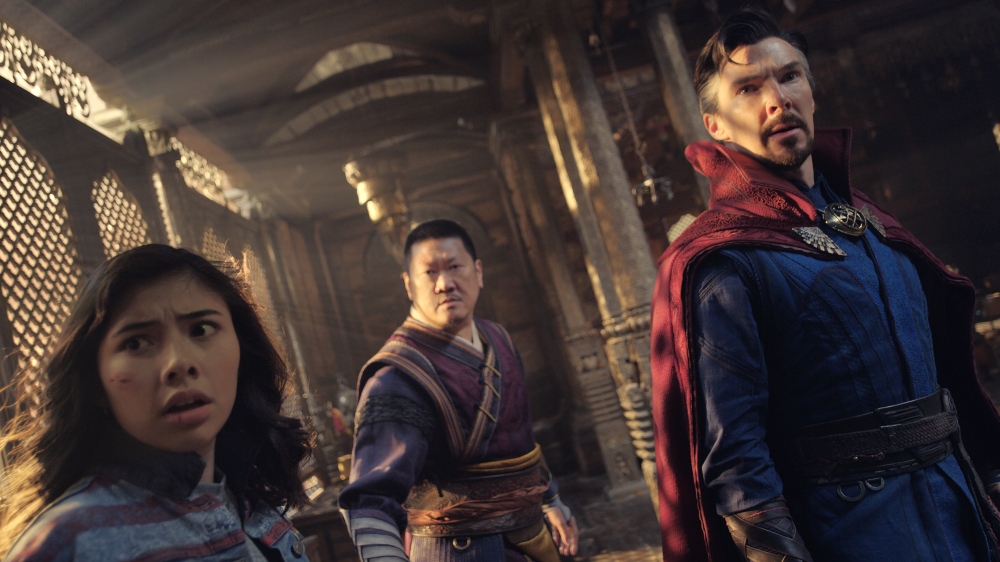
Just a heads up, I’m going to be talking about Doctor Strange in the Multiverse of Madness, and I’m going to be getting into spoiler territory, so if you haven’t seen it and want to avoid finding out anything you don’t want to know ahead of time, come back to read this after you’ve seen the movie. You’ve been warned.
I am a pretty big defender of the Marvel Cinematic Universe. I have, on numerous occasions and in many different places, referred to the 23-movie Infinity Saga as the single most impressive and remarkable storytelling achievement in the history of cinema. Nothing has ever or will ever come close to it. Over the course of 11 years, in those 23 movies, a single story was told, with each chapter standing on its own — with the exception of Avengers: Endgame, of course, but that was the second part of a two-part film, so it doesn’t really count — and literally dozens of characters coming and going with lives and stories of their own. It all happened because of the success of a single movie, and when Iron Man hit in 2008, no one had any idea that it would go the way it ultimately did. Marvel Entertainment President Kevin Feige didn’t have a huge master plan at the beginning, he just worked with his filmmakers and his team and came up with something nearly perfect.
Yes, I know the movies have their detractors, and that’s fine, but the sheer scope of it all, happening over the span of exactly 3,000 minutes, is undeniable. I will continue to belt this out to the back row as long as I have a voice with which to do so.
Because of this, and my admiration for Feige’s achievement with the MCU, I feel like I am on firm ground when I say that, in the three years since Endgame and the epilogue, Spider-Man: Far From Home appeared in theaters, things have gone a bit awry.
On the one hand, having a streaming outlet like Disney+ at one’s disposal is a great thing, as it offers opportunities for other kinds of storytelling, like limited series that allow for the further expansion of characters. WandaVision was the first one, and it was rather successful, but the other entries have been somewhat scattershot since. The Falcon and the Winter Soldier, for instance, was a disappointment, and I thought the recent Moon Knight was a snore, but Loki was pretty good, and I loved Hawkeye.
On the cinematic front, I was underwhelmed by Black Widow, rather enjoyed Shang-Chi, was bored to tears by Eternals, and loved Spider-Man: No Way Home. This, from a guy who tended to like most things Marvel had previously put out there, and so the fact that I found half of the movies to be released since Far From Home to be sorely lacking is really saying something.
But I had hopes for the new Doctor Strange movie because I loved the first one, I tend to like Sam Raimi’s work, and I appreciate Benedict Cumberbatch’s portrayal of the Sorcerer Supreme, as well as the way that the character was treated in No Way Home.
Then I sat down and watched the movie, and very quickly realized there was something very, very wrong with what I was watching.

Within the first few minutes of Multiverse of Madness, it becomes painfully clear that, if you didn’t watch WandaVision, you would have no clue as to why Elizabeth Olsen’s Scarlet Witch had gone completely insane and was now one of the most powerful villains in the entire multiverse. Sure, there’s a bit of lip service as to why she has broken bad, but without that background information and the story that went with it, you’re left scratching your head at a one-dimensional character, brought to life by an admittedly strong performance from Olsen.
And, see, that doesn’t work from a storytelling perspective, because the whole point of these movies is that they need to stand on their own, not be the continuation of a TV show. I understand that all of the various MCU tales are connected, but forcing fans to follow the story from one medium (TV) to another (movies) is not only cheating, it’s lazy.
‘But Neil,’ you might say, ‘what about TV shows that become movies? Don’t you have to watch those shows first and then see the movie?’
Not if it’s done right, you don’t. Perfect example? Downton Abbey. I loved the show, and when the first movie came out three years ago, I took a woman I was dating at the time to see it, despite her never having seen a single episode. Turns out, she didn’t need to. The movie explained simply and quickly who everyone was, what they were doing and why, and how it all fit together, refusing to assume that only fans of the show would come to the theater. It also told a delightful little story, and did so in a tidy 122 minutes.
Marvel clearly no longer thinks that way, though, and that’s a problem. I don’t know how the Infinity Saga might have turned out differently if Marvel had had access to Disney+ during its run, but it didn’t, so the point is moot. What’s important is what is happening now, and that’s the fact that Marvel seems to have lost sight of how to tell individual stories at the expense of larger ones, even if there doesn’t seem to be any current rhyme or reason to what that larger story might be.
Now, it’s certainly understandable, after something as enormous and expansive as the Infinity Saga, that Marvel might need time to figure out the shape of its Phase Four plans. The problem is that, unlike Phase One, in which the MCU’s first few movies felt like they were all tied together, the current Phase Four feels shapeless and aimless — like there’s no central spine to it all, and as a result, it’s harder to tell a story without external aids.

Having sat through Multiverse of Madness a second time, I am convinced it was not only possible to tell the story without too much painful exposition to bring the audience up to speed, but it also would have been fairly easy. But somewhere along the line, the decision was made that, ‘We’re just going to tell people that this movie is a direct sequel to WandaVision, and we’re not going to be figurative about it, as we might have been in the past.’
Okay, but if you want to make a sequel to a TV show, then make another TV show, don’t make a movie that audiences may or may not understand because they may or may not have seen the show that they need to see if they have any hope of figuring out what the hell is going on in the movie. That’s lazy, and it’s more than a little disrespectful to the audience. I sort of can’t believe I would ever accuse Marvel of being or doing either of those things, but after sitting through its latest cinematic entry — again, not once, but twice — it’s impossible not to.
This is an easily fixable problem, too. No more Iron Man or Captain America? Thor might be finished come July? No worries, just build around someone else, and give us some sense of where this overall story is going. Also, use the TV shows to support the movies rather than indispensable to understanding the movies. Don’t lose sight of what worked so well the first time around, and don’t get distracted by shiny new objects like Disney+ that offer alternative methods to tell stories, but which can get in the way of what’s happening on the big screen, which is what really counts.
I think Kevin Feige is one of the smartest guys in Hollywood. Because of that, I’m willing to give him the benefit of the doubt here, but that only lasts so long. You can be very sure that I am far from alone on this.
 Neil Turitz is a journalist, essayist, author, and filmmaker who has worked in and written about Hollywood for nearly 25 years, though he has never lived there. These days, he splits his time between New York City and the Berkshires. He’s not on Twitter, but you can find him on Instagram @6wordreviews.
Neil Turitz is a journalist, essayist, author, and filmmaker who has worked in and written about Hollywood for nearly 25 years, though he has never lived there. These days, he splits his time between New York City and the Berkshires. He’s not on Twitter, but you can find him on Instagram @6wordreviews.
You can read a new installation of The Accidental Turitz every Wednesday, and all previous columns can be found here.





